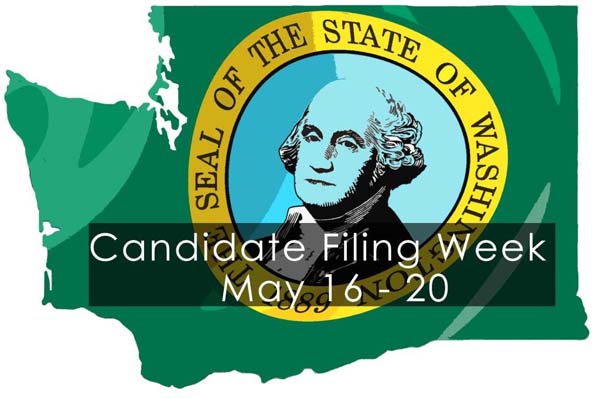Filing Week makes it official for WA candidates
Many Washington candidates have been campaigning for months, but it all becomes official May 16-20 with state Filing Week.
Candidates for U.S. Senate and House, all nine statewide executive offices, most of the legislative seats, the judiciary and some local offices will sign up, designate their party preference and pay a filing fee.
The Secretary of State will accept filings for federal and statewide candidates, the state Supreme Court, and all legislative and judicial offices encompassing more than one county. County election departments will handle all other filings.
At told, 346 offices are open for election, including 90 filing with the Secretary.
Candidates may file in person, by mail or online. State Elections Division staff will set up in Secretary of State Kim Wyman’s conference room in the Capitol for the week. They will do a random lot draw after filing concludes to determine candidates’ order on the ballot.
Wyman said:
“Filing Week is an exciting time for candidates and helps energize their campaigns. We expect a bumper crop of high-quality candidates and some lively campaigns, hotly contested in many cases. Along with the presidential race and ballot propositions, it will be a feast for voters. I expect a very robust turnout.”
Under Washington’s Top 2 system, candidates will designate the party label they prefer, using up to 16 characters. The choice usually is Democratic or Republican, but candidates are free to use other party preferences or no label at all. The party designation does not necessarily mean the candidate carries that party’s blessings or affiliation. Judicial races, the state school superintendent and some other offices are nonpartisan.
The filing fee is 1 percent of one year’s salary for the office sought. Examples: U.S. Senate or House, $1,740; governor, $1,718.98; Legislature, $454.74; state Supreme Court, $1,794.32.
Candidates may also submit Voters’ Pamphlet statement and photo. Financial disclosure is handled through the Public Disclosure Commission and, for U.S. House and Senate, the Federal Elections Commission.
